| 1 x afterRenderRawModule mod_tags_popular (Search) (24.83KB) (21.94%) | 51.60ms |
| 1 x afterRenderRawModule mod_articles_category (READ MORE...) (12.26KB) (21.46%) | 50.47ms |
| 1 x afterRenderComponent com_tags (1.64MB) (19.56%) | 46.01ms |
| 1 x afterInitialise (1.28MB) (10.7%) | 25.16ms |
| 1 x afterRender (344.58KB) (6.32%) | 14.86ms |
| 1 x beforeRenderRawModule mod_articles_category (READ MORE...) (439.86KB) (2.94%) | 6.92ms |
| 1 x afterRoute (840.02KB) (2.58%) | 6.08ms |
| 1 x afterLoad (456.41KB) (1.31%) | 3.08ms |
| 1 x afterDispatch (27.42KB) (1.21%) | 2.84ms |
| 1 x beforeRenderRawModule mod_custom (Chronic fatigue tied Alan to his bed but Q10 capsules saved him:) (244.28KB) (1.19%) | 2.80ms |
| 1 x afterRenderRawModule mod_custom () (22.64KB) (1.18%) | 2.77ms |
| 1 x afterRenderRawModule mod_menu (Main Menu - English) (192.45KB) (1.08%) | 2.53ms |
| 1 x afterRenderRawModule mod_finder () (128.59KB) (1.06%) | 2.50ms |
| 1 x afterRenderRawModule mod_languages (Sprogskift) (22.55KB) (0.97%) | 2.28ms |
| 1 x beforeRenderRawModule mod_menu (Main Menu - English) (29.14KB) (0.81%) | 1.89ms |
| 1 x afterRenderRawModule mod_languages (Sprogskift Mobil) (3.89KB) (0.78%) | 1.84ms |
| 1 x afterRenderRawModule mod_custom () (904B) (0.66%) | 1.56ms |
| 1 x afterRenderRawModule mod_finder () (6.29KB) (0.5%) | 1.17ms |
| 1 x Before Access::preloadComponents (all components) (50.9KB) (0.42%) | 996μs |
| 1 x afterRenderRawModule mod_menu (Main Menu - English) (6.3KB) (0.37%) | 880μs |
| 1 x After Access::preloadComponents (all components) (103.05KB) (0.36%) | 838μs |
| 1 x afterRenderRawModule mod_menu (Are you getting enough vitamins and minerals?) (22.39KB) (0.34%) | 790μs |
| 1 x beforeRenderComponent com_tags (20.62KB) (0.19%) | 458μs |
| 1 x beforeRenderModule mod_articles_category (READ MORE...) (20.82KB) (0.17%) | 391μs |
| 1 x afterRenderRawModule mod_custom (BOOST YOUR IMMUNE DEFENSE) (3.8KB) (0.16%) | 373μs |
| 1 x afterRenderRawModule mod_menu (Did you know.....) (25.52KB) (0.13%) | 305μs |
| 1 x afterRenderRawModule mod_menu (The key to increased well-being) (17.83KB) (0.11%) | 254μs |
| 1 x beforeRenderRawModule mod_custom () (8.66KB) (0.09%) | 208μs |
| 1 x afterRenderRawModule mod_custom () (896B) (0.07%) | 176μs |
| 1 x beforeRenderRawModule mod_custom () (6.62KB) (0.07%) | 163μs |
| 1 x beforeRenderRawModule mod_menu (Main Menu - English) (5.07KB) (0.06%) | 132μs |
| 1 x beforeRenderRawModule mod_custom () (688B) (0.06%) | 131μs |
| 1 x afterRenderModule mod_custom (Chronic fatigue tied Alan to his bed but Q10 capsules saved him:) (1.3KB) (0.04%) | 97μs |
| 1 x After Access::getAssetRules (id:8 name:com_content) (7.05KB) (0.03%) | 79μs |
| 1 x afterRenderModule mod_menu (Main Menu - English) (4.86KB) (0.03%) | 77μs |
| 1 x afterRenderRawModule mod_custom (Get additionel and more detailed knowledge ) (1.55KB) (0.03%) | 72μs |
| 1 x afterRenderModule mod_custom () (1.23KB) (0.03%) | 69μs |
| 1 x afterRenderModule mod_finder () (1.23KB) (0.03%) | 66μs |
| 1 x afterRenderModule mod_menu (Main Menu - English) (1.25KB) (0.03%) | 59μs |
| 1 x afterRenderRawModule mod_custom (Chronic fatigue tied Alan to his bed but Q10 capsules saved him:) (1.06KB) (0.02%) | 56μs |
| 1 x afterRenderModule mod_custom () (2.43KB) (0.02%) | 50μs |
| 1 x afterRenderModule mod_languages (Sprogskift Mobil) (1.27KB) (0.02%) | 49μs |
| 1 x afterRenderModule mod_articles_category (READ MORE...) (1.25KB) (0.02%) | 46μs |
| 1 x beforeRenderRawModule mod_custom (Get additionel and more detailed knowledge ) (816B) (0.02%) | 45μs |
| 1 x afterRenderModule mod_finder () (3.29KB) (0.02%) | 43μs |
| 1 x beforeRenderRawModule mod_custom (BOOST YOUR IMMUNE DEFENSE) (6.45KB) (0.02%) | 39μs |
| 1 x afterRenderRawModule mod_custom (Useful Links) (1.02KB) (0.01%) | 35μs |
| 1 x beforeRenderRawModule mod_tags_popular (Search) (2.36KB) (0.01%) | 35μs |
| 1 x afterRenderModule mod_custom (Cholesterol-lowering without side effects:) (1.28KB) (0.01%) | 32μs |
| 1 x Before Access::getAssetRules (id:8 name:com_content) (840B) (0.01%) | 27μs |
| 1 x afterRenderModule mod_custom (BOOST YOUR IMMUNE DEFENSE) (1.28KB) (0.01%) | 27μs |
| 1 x afterRenderModule mod_tags_popular (Search) (1.27KB) (0.01%) | 26μs |
| 1 x afterRenderModule mod_custom (Get additionel and more detailed knowledge ) (1.3KB) (0.01%) | 26μs |
| 1 x afterRenderModule mod_custom () (2.71KB) (0.01%) | 26μs |
| 1 x afterRenderRawModule mod_custom (Overview of vitamins, minerals, and essential fatty acids) (960B) (0.01%) | 25μs |
| 1 x afterRenderRawModule mod_custom (Cholesterol-lowering without side effects:) (1.06KB) (0.01%) | 25μs |
| 1 x afterRenderModule mod_languages (Sprogskift) (5.31KB) (0.01%) | 25μs |
| 1 x afterRenderModule mod_custom (Weight loss that works) (1.27KB) (0.01%) | 22μs |
| 1 x afterRenderModule mod_custom (Overview of vitamins, minerals, and essential fatty acids) (1.31KB) (0.01%) | 22μs |
| 1 x afterRenderModule mod_custom (Q10 goes by many names) (1.27KB) (0.01%) | 22μs |
| 1 x afterRenderModule mod_custom (Check this before you buy a Q10 product) (1.28KB) (0.01%) | 22μs |
| 1 x afterRenderModule mod_custom (Antiaging) (3.77KB) (0.01%) | 22μs |
| 1 x afterRenderModule mod_custom (Are you taking supplements) (1.28KB) (0.01%) | 21μs |
| 1 x afterRenderModule mod_menu (Are you getting enough vitamins and minerals?) (1.3KB) (0.01%) | 21μs |
| 1 x afterRenderModule mod_menu (The key to increased well-being) (1.28KB) (0.01%) | 21μs |
| 1 x afterRenderModule mod_menu (Did you know.....) (1.27KB) (0.01%) | 21μs |
| 1 x afterRenderRawModule mod_custom (Q10 goes by many names) (928B) (0.01%) | 20μs |
| 1 x afterRenderModule mod_custom (Useful Links) (1.27KB) (0.01%) | 20μs |
| 1 x beforeRenderRawModule mod_languages (Sprogskift) (3.94KB) (0.01%) | 20μs |
| 1 x beforeRenderRawModule mod_menu (The key to increased well-being) (736B) (0.01%) | 19μs |
| 1 x beforeRenderRawModule mod_custom (Useful Links) (1.06KB) (0.01%) | 19μs |
| 1 x afterRenderRawModule mod_custom (Are you taking supplements) (1.03KB) (0.01%) | 19μs |
| 1 x afterRenderRawModule mod_custom (Weight loss that works) (1.03KB) (0.01%) | 18μs |
| 1 x afterRenderRawModule mod_custom (Antiaging) (912B) (0.01%) | 18μs |
| 1 x afterRenderRawModule mod_custom (Check this before you buy a Q10 product) (944B) (0.01%) | 18μs |
| 1 x beforeRenderRawModule mod_languages (Sprogskift Mobil) (912B) (0.01%) | 18μs |
| 3 x beforeRenderModule mod_custom () (704B) (0.01%) | 17μs |
| 1 x beforeRenderRawModule mod_menu (Did you know.....) (720B) (0.01%) | 15μs |
| 1 x beforeRenderRawModule mod_finder () (6.34KB) (0.01%) | 15μs |
| 1 x beforeRenderRawModule mod_finder () (2.3KB) (0.01%) | 15μs |
| 1 x beforeRenderRawModule mod_custom (Cholesterol-lowering without side effects:) (368B) (0.01%) | 14μs |
| 2 x beforeRenderModule mod_finder () (704B) (0.01%) | 14μs |
| 1 x beforeRenderModule mod_custom (BOOST YOUR IMMUNE DEFENSE) (6.81KB) (0.01%) | 13μs |
| 1 x beforeRenderModule mod_custom (Get additionel and more detailed knowledge ) (1.17KB) (0.01%) | 13μs |
| 1 x beforeRenderRawModule mod_menu (Are you getting enough vitamins and minerals?) (2.5KB) (0.01%) | 13μs |
| 1 x beforeRenderRawModule mod_custom (Overview of vitamins, minerals, and essential fatty acids) (768B) (0.01%) | 12μs |
| 1 x beforeRenderModule mod_tags_popular (Search) (1.98KB) (0.01%) | 12μs |
| 2 x beforeRenderModule mod_menu (Main Menu - English) (720B) (0.01%) | 12μs |
| 1 x beforeRenderModule mod_menu (Are you getting enough vitamins and minerals?) (2.13KB) (0%) | 11μs |
| 1 x beforeRenderModule mod_menu (The key to increased well-being) (352B) (0%) | 11μs |
| 1 x beforeRenderModule mod_custom (Overview of vitamins, minerals, and essential fatty acids) (384B) (0%) | 10μs |
| 1 x beforeRenderModule mod_menu (Did you know.....) (336B) (0%) | 10μs |
| 1 x beforeRenderModule mod_custom (Useful Links) (1.44KB) (0%) | 10μs |
| 1 x beforeRenderRawModule mod_custom (Q10 goes by many names) (608B) (0%) | 9μs |
| 1 x beforeRenderRawModule mod_custom (Check this before you buy a Q10 product) (752B) (0%) | 9μs |
| 1 x beforeRenderRawModule mod_custom (Weight loss that works) (736B) (0%) | 9μs |
| 1 x beforeRenderModule mod_custom (Q10 goes by many names) (208B) (0%) | 9μs |
| 1 x beforeRenderModule mod_custom (Antiaging) (336B) (0%) | 9μs |
| 1 x beforeRenderRawModule mod_custom (Antiaging) (720B) (0%) | 9μs |
| 1 x beforeRenderModule mod_custom (Weight loss that works) (336B) (0%) | 9μs |
| 1 x beforeRenderRawModule mod_custom (Are you taking supplements) (736B) (0%) | 8μs |
| 1 x beforeRenderModule mod_custom (Check this before you buy a Q10 product) (352B) (0%) | 8μs |
| 1 x beforeRenderModule mod_custom (Are you taking supplements) (352B) (0%) | 8μs |
| 1 x beforeRenderModule mod_languages (Sprogskift) (720B) (0%) | 8μs |
| 1 x beforeRenderModule mod_languages (Sprogskift Mobil) (720B) (0%) | 7μs |
| 1 x beforeRenderModule mod_custom (Chronic fatigue tied Alan to his bed but Q10 capsules saved him:) (768B) (0%) | 6μs |
| 1 x beforeRenderModule mod_custom (Cholesterol-lowering without side effects:) (752B) (0%) | 2μs |
 Most cells in the human body need vitamin D. The nutrient also has an important role in preventing symptoms and diseases that may occur after menopause – including osteoporosis, muscle weakness, dry mucosa, mood swings, cardiovascular disease, type 2 diabetes, and cancer. In an article that is published in Frontiers in Physiology, the authors address the widespread vitamin D deficiency that is an overlooked problem in post-menopausal women, and they suggest striving to have optimal vitamin D levels in the blood throughout life.
Most cells in the human body need vitamin D. The nutrient also has an important role in preventing symptoms and diseases that may occur after menopause – including osteoporosis, muscle weakness, dry mucosa, mood swings, cardiovascular disease, type 2 diabetes, and cancer. In an article that is published in Frontiers in Physiology, the authors address the widespread vitamin D deficiency that is an overlooked problem in post-menopausal women, and they suggest striving to have optimal vitamin D levels in the blood throughout life.







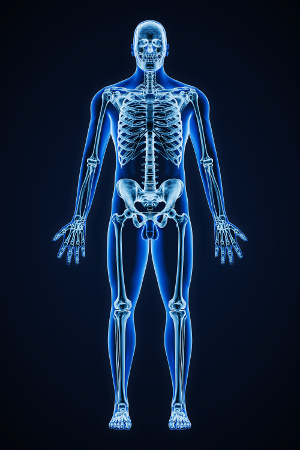
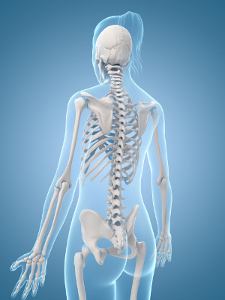 Many people avoid dairy products because they are lactose intolerant, are vegan, or for other reasons. Milk is a good source of nutrients, especially calcium, but you can easily get enough calcium from other food sources. What is more, it appears that vitamin D, vitamin K2, and the calcium/magnesium ratio is even more important than calcium alone for the structure and maintenance of strong bones. Another thing to remember is that sugar, soft drinks, stimulants, and certain types of medicine can disrupt the bone-building processes. Therefore, having strong bones is about a lot more than dairy products and calcium alone. Finally, don’t forget that daily weight-bearing exercise stimulates bone density.
Many people avoid dairy products because they are lactose intolerant, are vegan, or for other reasons. Milk is a good source of nutrients, especially calcium, but you can easily get enough calcium from other food sources. What is more, it appears that vitamin D, vitamin K2, and the calcium/magnesium ratio is even more important than calcium alone for the structure and maintenance of strong bones. Another thing to remember is that sugar, soft drinks, stimulants, and certain types of medicine can disrupt the bone-building processes. Therefore, having strong bones is about a lot more than dairy products and calcium alone. Finally, don’t forget that daily weight-bearing exercise stimulates bone density.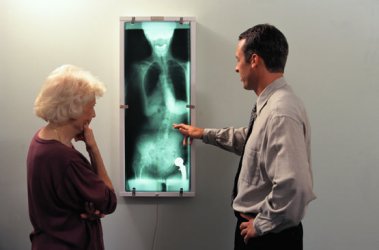 A group of leading international experts (ESCEO) says in a new report that glucosamine sulfate in a pharmaceutical grade is safe and effective in the treatment of osteoarthritis and that it can be recommended as a basic treatment of this disorder. Also chondroitin is recommended
A group of leading international experts (ESCEO) says in a new report that glucosamine sulfate in a pharmaceutical grade is safe and effective in the treatment of osteoarthritis and that it can be recommended as a basic treatment of this disorder. Also chondroitin is recommended Combined supplementation with chondroitin sulphate and glucosamine could help to reduce knee joint pain, stiffness, and functional disability of people with osteoarthritis, according to new research published in the top rheumatology journal: Annals of the Rheumatic Diseases.
Combined supplementation with chondroitin sulphate and glucosamine could help to reduce knee joint pain, stiffness, and functional disability of people with osteoarthritis, according to new research published in the top rheumatology journal: Annals of the Rheumatic Diseases.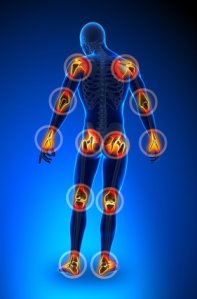 Osteoarthritis is a widespread disease that eventually affects the majority of us. The symptoms often feel worse during the wintertime. A European group of experts now recommends glucosamine sulfate as first-line treatment, before painkillers, as glucosamine sulfate is the only remedy that can prevent further progression of the disease and therefore effectively reduces the pain.
Osteoarthritis is a widespread disease that eventually affects the majority of us. The symptoms often feel worse during the wintertime. A European group of experts now recommends glucosamine sulfate as first-line treatment, before painkillers, as glucosamine sulfate is the only remedy that can prevent further progression of the disease and therefore effectively reduces the pain.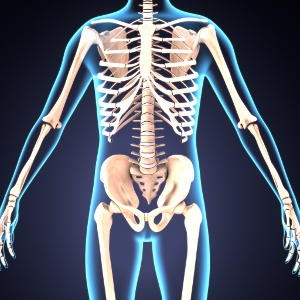
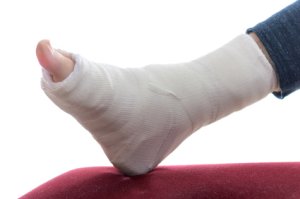 Lack of
Lack of 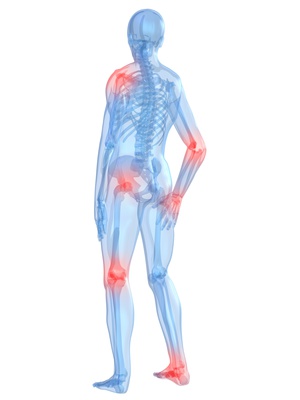 Besides causing pain in joints, osteoarthritis may lead to neck pain, headaches, back pain, tennis elbow, and other symptoms, many of which we normally wouldn't associate with osteoarthritis. It is therefore vital to address the underlying cause. An increasing number of studies show that glucosamine can halt the progression of osteoarthritis and, subsequently, slam the brakes on the accompanying pain. It is, however, important to choose glucosamine in drug form with the type of glucosamine called glucosamine sulfate in order to obtain the desired effect.
Besides causing pain in joints, osteoarthritis may lead to neck pain, headaches, back pain, tennis elbow, and other symptoms, many of which we normally wouldn't associate with osteoarthritis. It is therefore vital to address the underlying cause. An increasing number of studies show that glucosamine can halt the progression of osteoarthritis and, subsequently, slam the brakes on the accompanying pain. It is, however, important to choose glucosamine in drug form with the type of glucosamine called glucosamine sulfate in order to obtain the desired effect.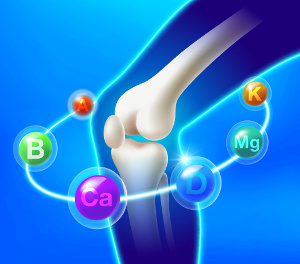
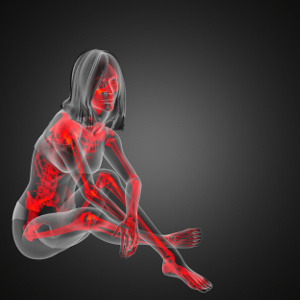 Calcium and vitamin D normally get all the attention when it comes to bone health. However, magnesium also plays a crucial, but often overlooked, role. This was demonstrated in a large population study that is published in Frontiers in Nutrition. The study links lower dietary magnesium to a greater risk of developing osteoporosis, especially for women aged 55 years and older. Osteoporosis normally takes many years to develop so it is vital to get plenty of magnesium from the diet or from supplements. Also, beware that excessive calcium intake, antacids, and diuretics block the body’s ability to absorb and utilize magnesium.
Calcium and vitamin D normally get all the attention when it comes to bone health. However, magnesium also plays a crucial, but often overlooked, role. This was demonstrated in a large population study that is published in Frontiers in Nutrition. The study links lower dietary magnesium to a greater risk of developing osteoporosis, especially for women aged 55 years and older. Osteoporosis normally takes many years to develop so it is vital to get plenty of magnesium from the diet or from supplements. Also, beware that excessive calcium intake, antacids, and diuretics block the body’s ability to absorb and utilize magnesium.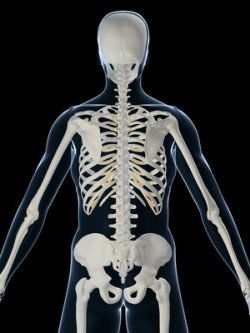 Fragile bones, also known as osteoporosis, is an insidious scourge. Science has its eyes on
Fragile bones, also known as osteoporosis, is an insidious scourge. Science has its eyes on 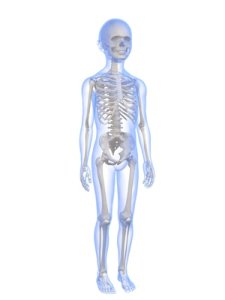 We consume far too much sugar from candy, soft beverages or in the form of concealed sugar in our food. This impairs the body’s uptake and utilization of
We consume far too much sugar from candy, soft beverages or in the form of concealed sugar in our food. This impairs the body’s uptake and utilization of 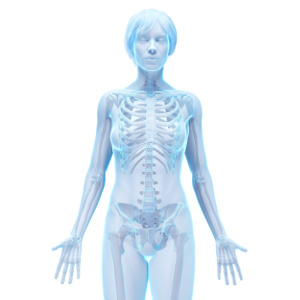
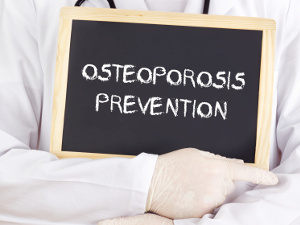
 Hip fractures are particularly common among older people and are often associated with a number of serious complications. However, seniors that are not vitamin D-deficient may have better chances of walking again after their surgery, according to a new study that is published in the American Journal of Clinical Nutrition. Earlier Danish research even shows that having sufficient amounts of
Hip fractures are particularly common among older people and are often associated with a number of serious complications. However, seniors that are not vitamin D-deficient may have better chances of walking again after their surgery, according to a new study that is published in the American Journal of Clinical Nutrition. Earlier Danish research even shows that having sufficient amounts of 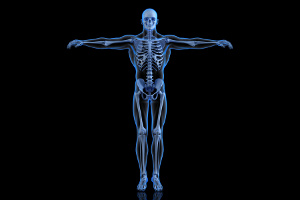 Bone fractures can be fatal, especially in old age where hip fractures typically result in hospitalization and early death. According to a study from Edith Cowan University in Australia, increased intake of
Bone fractures can be fatal, especially in old age where hip fractures typically result in hospitalization and early death. According to a study from Edith Cowan University in Australia, increased intake of 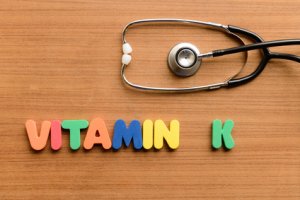
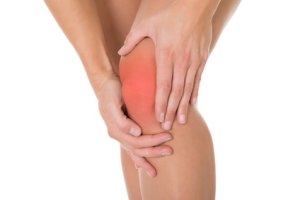 According to researchers, women with weak thighs and hamstrings have an increased risk of developing knee osteoarthritis. Of course, leg muscle exercise is important for preventing this condition, but adequate nutrient intake and maintenance of the right body weight also contribute. For those who are already affected by knee osteoarthritis, glucosamine supplements can be useful. Make sure to choose glucosamine sulfate and to stick with glucosamine supplements that are listed as medical drugs if you want to be sure to obtain the desired effect.
According to researchers, women with weak thighs and hamstrings have an increased risk of developing knee osteoarthritis. Of course, leg muscle exercise is important for preventing this condition, but adequate nutrient intake and maintenance of the right body weight also contribute. For those who are already affected by knee osteoarthritis, glucosamine supplements can be useful. Make sure to choose glucosamine sulfate and to stick with glucosamine supplements that are listed as medical drugs if you want to be sure to obtain the desired effect. "After about one week of taking the Q10 supplement I could feel a huge difference," says 23-year old Alan Piccini, who has been suffering from extreme fatigue and muscle aches ever since he was a child.
"After about one week of taking the Q10 supplement I could feel a huge difference," says 23-year old Alan Piccini, who has been suffering from extreme fatigue and muscle aches ever since he was a child. “Taking capsules with co-enzyme Q10 has freed me of the severe side effects of my cholesterol lowering medicine,” Mrs Franken explains.
“Taking capsules with co-enzyme Q10 has freed me of the severe side effects of my cholesterol lowering medicine,” Mrs Franken explains.